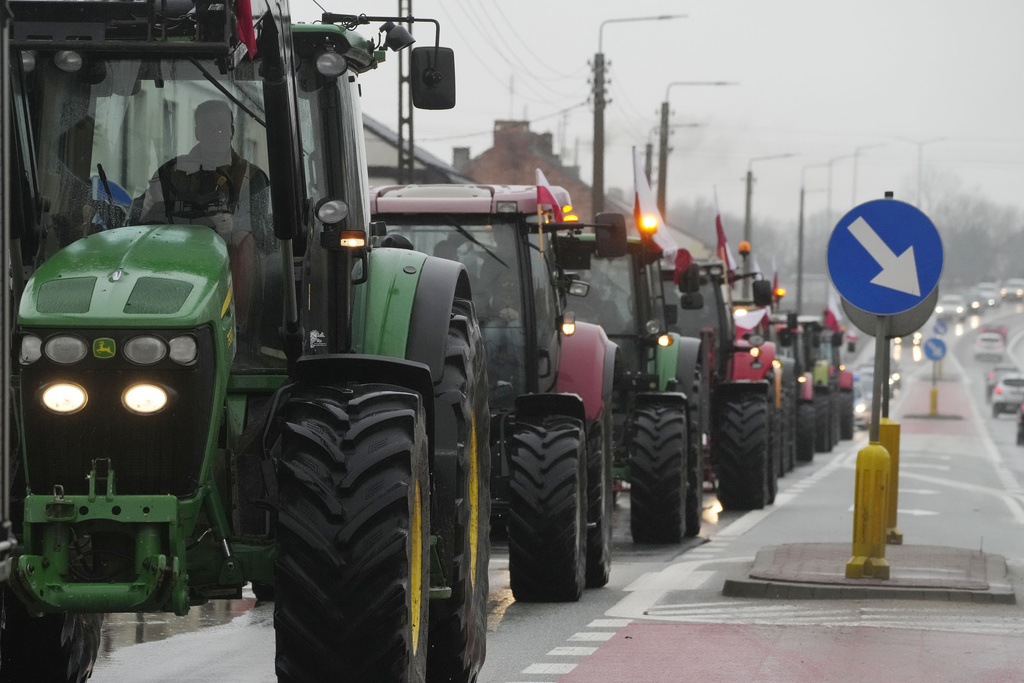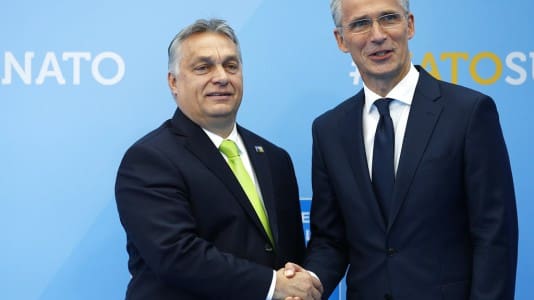Slow-moving machinery such as tractors and groups of pedestrians held up traffic all over Poland as Poland’s farmers joined in with European-wide protests designed to push back against a range of government policies farmers say are endangering the future of their industry and trade.
The outbreak of protests, which were signaled last week, comes on the heels of a series of demonstrations and border blockades by Polish truckers that have lasted for months. In addition to protesting against the EU’s “green transition,” these farmers are focused on the liberalization of permits for Ukrainian truckers, which have allowed cheap agricultural goods to flood the Polish and European markets, hurting Polish farmers’ domestic business.
The protests began at noon on Wednesday and are likely to continue over the coming days.
With slogans in support of farmers and agriculture, the main demand of the nationwide farmers’ protest is to stop “uncontrolled imports of agricultural products from Ukraine and other countries outside the EU that do not comply with European standards.”
One of the triggers for the protests was the obligation to comply with an EU policy requiring farmers to leave a certain portion of their fields fallow, which means that a particular portion of land lies idle. Environmentalists argue this allows the land to recover, reduces the need for fertilizers, and can support wildlife and wild plant species.
One of the protesting farmers compared this to factories having to close down parts of their production and pointed to the uncertain geopolitical situation and climate change as additional risks hitting agriculture. He said he believes that due to the regulation requiring him to leave land fallow, he stands to lose almost €15,000 per year from the cessation of production on 30 hectares. He also questioned the logic behind the EU imposing standard solutions on all countries.
Farmers in Poland are additionally up in arms over duty-free imports from Ukraine. They feel they cannot compete with Ukrainian companies that do not have to meet EU standards, while the EU limits their production capacity and stops the use of GMO products, which are freely used in Ukraine.
The Polish government is promising to take action to meet the farmers’ demands. Deputy Minister Michał Kołodziejczak told the farmers that the government was engaged in fruitful talks with both Ukraine and Brussels, and that a bilateral agreement between Poland and Ukraine to meet the farmers’ concerns was possible.
He also said that the EU must ensure its agricultural policies are able to handle the influx of Ukrainian goods.






